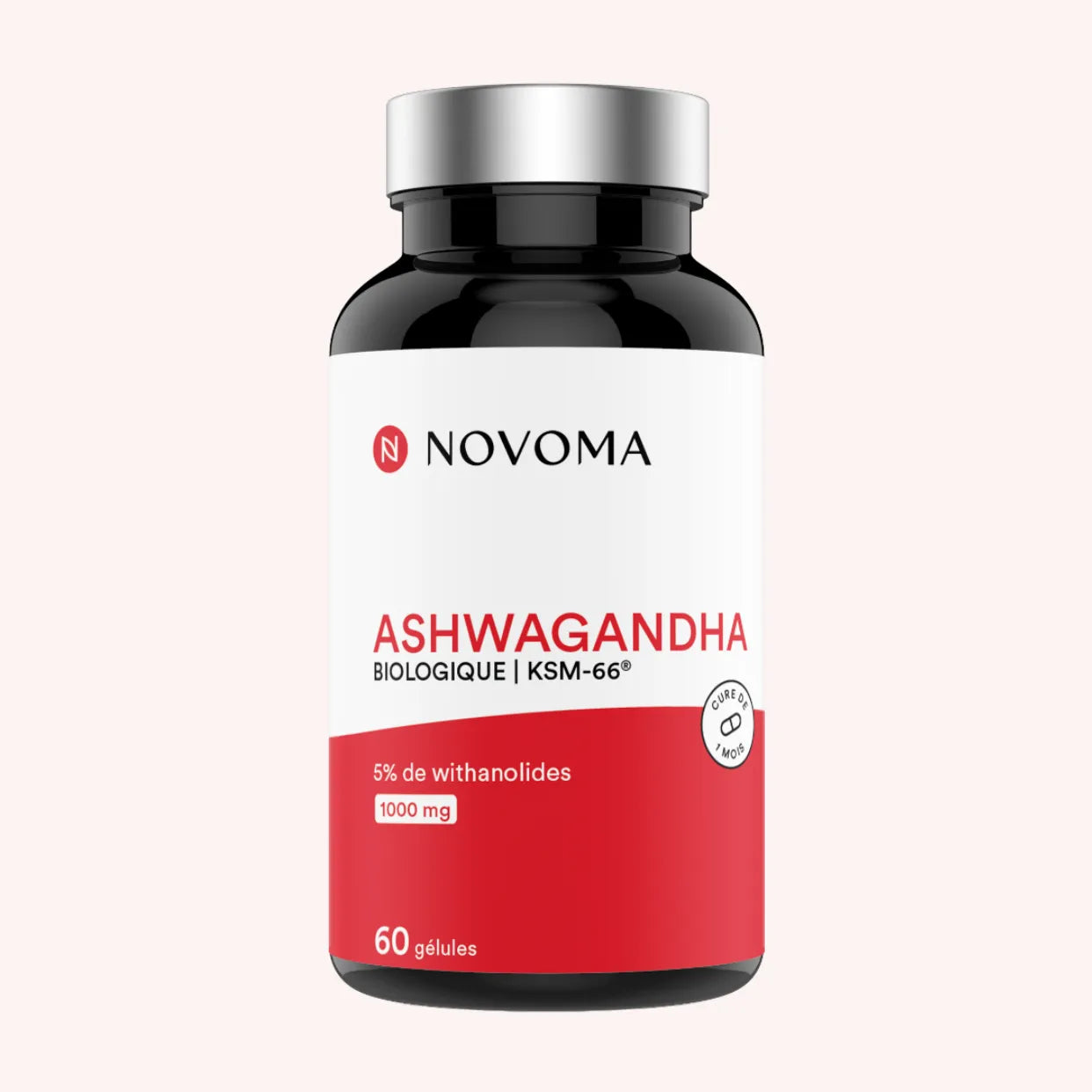Ashwagandha, an iconic herb in traditional Ayurvedic medicine , is increasingly prized for its many health benefits. However, like any dietary supplement , it is not without risks.
Here, we'll analyze the potential risks and precautions needed to safely incorporate ashwagandha into your wellness routine. You'll learn everything you need to know to enjoy the benefits of this plant while avoiding its side effects.
What is ashwagandha?
The plant is used in various forms, primarily as powder or capsules made from its roots. Ashwagandha roots contain bioactive compounds called withanolides, which are responsible for its beneficial effects.
Why take an ashwagandha supplement?
Ashwagandha is widely used as a health supplement for a variety of reasons:
- Stress and Anxiety Reduction: As an adaptogen, ashwagandha helps reduce stress by moderating the production of cortisol, the hormone responsible for anxiety.
- Improved physical performance: Numerous studies show that ashwagandha improves muscle strength, endurance, and post-workout recovery.
- Cognitive Support: Ashwagandha is known to improve memory, concentration, and overall cognitive function.
- Immune Support: Thanks to its antioxidant and anti-inflammatory properties, ashwagandha strengthens the immune system .
Due to its many benefits , ashwagandha has become a popular supplement for those looking to improve their physical and mental well-being naturally.
What are the side effects of ashwagandha?
Although ashwagandha is generally considered safe when consumed at recommended doses, it may cause certain side effects in some people.
Digestive disorders
The most common side effects include digestive disturbances such as nausea, vomiting, diarrhea, and abdominal pain.
These symptoms are usually mild and transient, and can often be avoided by following the recommended doses.
Allergic reactions
People allergic to other plants in the Solanaceae family, such as tomatoes, peppers, or eggplant, should be careful.
Ashwagandha may cause allergic reactions in these individuals, manifesting as itching, rashes, or difficulty breathing.
Drowsiness and sedation
Ashwagandha is known for its relaxing and sedative effects. While this can be beneficial for those suffering from stress or sleep disturbances, it can also cause excessive drowsiness in some people.
Does ashwagandha pose any health risks?
Effects on the liver
Although rare, high-dose ashwagandha use has been linked to cases of liver damage. Symptoms include jaundice, nausea, extreme fatigue, and abdominal pain.
These effects are attributed to a compound in ashwagandha, withanone, which can be toxic in high doses. It is essential that you follow the recommended doses to avoid these risks.
Impact on the thyroid
Ashwagandha may influence thyroid function . It is often beneficial for people with hypothyroidism, as it can stimulate the production of thyroid hormones.
However, it can worsen hyperthyroidism, a condition in which the thyroid gland becomes overactive.
Cases of ashwagandha-induced hyperthyroidism have also been reported, especially when high doses are consumed.
Ashwagandha and contraindications
Pregnant and breastfeeding women
Ashwagandha is not recommended for pregnant and breastfeeding women due to a lack of data on its safety during these periods.
In some studies, it has been suspected that the active compounds in ashwagandha may potentially affect fetal or infant development.
Drug interactions
Ashwagandha can interact with several types of medications. People taking medications for diabetes, high blood pressure, immunosuppressants, or sedatives should consult a healthcare professional before starting ashwagandha supplementation.
Taking it could possibly increase or decrease the effectiveness of these medications.
Autoimmune diseases
People with autoimmune diseases, such as multiple sclerosis, lupus, or rheumatoid arthritis, should avoid ashwagandha.
Stomach ulcers
Ashwagandha can irritate the gastrointestinal tract and should be avoided by people with stomach ulcers.
Consuming this plant can exacerbate ulcer symptoms, causing significant pain and discomfort.
Prostate problems
Men with prostate cancer should be cautious with ashwagandha, as it can increase testosterone levels, potentially worsening the disease.
Studies show that consuming ashwagandha can, in some cases, stimulate testosterone production, which could accelerate the progression of prostate cancer.
Ashwagandha offers many health benefits, including stress reduction, improved physical and cognitive performance, and immune system strengthening. However, it may also pose risks for some people, including those with autoimmune diseases, thyroid disorders, liver problems, or those taking certain medications.
To reap the benefits of ashwagandha while minimizing risks, always follow the recommended doses and pay attention to your body's reactions. Careful consumption is definitely the best way to reap the benefits of this adaptogenic herb .
Sources:
- Ashwagandha - Special Topics - MSD Manual Professional Edition : https://www.msdmanuals.com/professional/special-topics/supplements/ashwagandha
- Wiciński M, Fajkiel-Madajczyk A, et al. “Can Ashwagandha Benefit the Endocrine System?-A Review.” Int J Mol Sci. 2023 .: https://pubmed.ncbi.nlm.nih.gov/38003702/
- Casiano-Manzano S, et al. “Unveiling the risks of ashwagandha-induced hepatotoxicity.” Rev Esp Enferm Dig. 2023 .: https://pubmed.ncbi.nlm.nih.gov/37982556/
- Verma N, Gupta SK, et al. “Safety of Ashwagandha Root Extract: A Randomized, Placebo-Controlled, study in Healthy Volunteers.” Ther Med supplement. 2021 .: https://pubmed.ncbi.nlm.nih.gov/33338583/
- Abdel-Wahhab KG, et al. “Role of ashwagandha methanolic extract in the regulation of thyroid profile in hypothyroidism modeled rats.” Mol Biol Rep. 2019 .: https://pubmed.ncbi.nlm.nih.gov/31203475/










